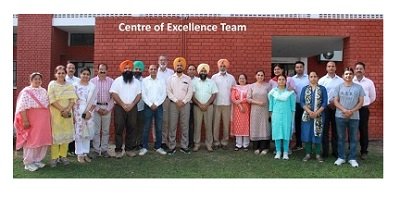DAHD unveils ‘One Health’ pilot project in Uttarakhand
The key objective of the unit is to develop a national One Health roadmap based on the learnings of the pilot project implementation
The Department of Animal Husbandry & Dairying (DAHD), Government of India has launched a pilot project in the state of Uttarakhand to implement the One Health Framework by One Health Support Unit. The key objective of the unit is to develop a national One Health roadmap based on the learnings of the pilot project implementation.
The inter-ministerial One Health committee under the chairmanship of the Principal Scientific Adviser to the Government of India has been established to lead the implementation of the One Health Support Unit. A Project Steering Committee (PSC) is constituted under the chairmanship of Secretary (AHD), GoI involving representatives from the Ministry of Health and Family Welfare, Ministry of Environment, Forest and Climate Change, ICAR, civil societies, international development organisations and field practitioners.
Based on the recommendations of PSC, state and district level one health committees need to be constituted by involving competent authorities from health, animal husbandry and environment ministries. Some of the key activities to be undertaken as part of the pilot project include institutionalising the mechanism for the data collection on disease outbreaks, prevalence, management, and development of targeted surveillance plan, integrating the network of laboratories, developing and implementing communication strategy across sectors and integration of the data with the digital architecture of the National Digital Livestock Mission.
The pilot project in Uttarakhand was launched by Atul Chaturvedi, Secretary, Department of Animal Husbandry & Dairying, Ministry of Fisheries, Animal Husbandry and Dairying, Government of India in the presence of Dr Praveen Malik, Animal Husbandry Commissioner, Government of India, Alkesh Wadhwani, Director, Poverty Alleviation Bill and Melinda Gates Foundation India, Dr R Meenakshi Sundaram, Secretary, Department of Animal Husbandry, Government of Uttarakhand, Shri Pankaj Kumar Pandey, Secretary, Department of Medical, Health and Family Welfare Government of Uttarakhand, Ranjan Kumar Mishra, Additional Principal Chief Conservator of Forests, Wildlife Uttarakhand Forest Department, Government of Uttarakhand and Dr Prem Kumar, Director, Department of Animal Husbandry Government of Uttarakhand among other key stakeholders.
The key objective of the unit is














